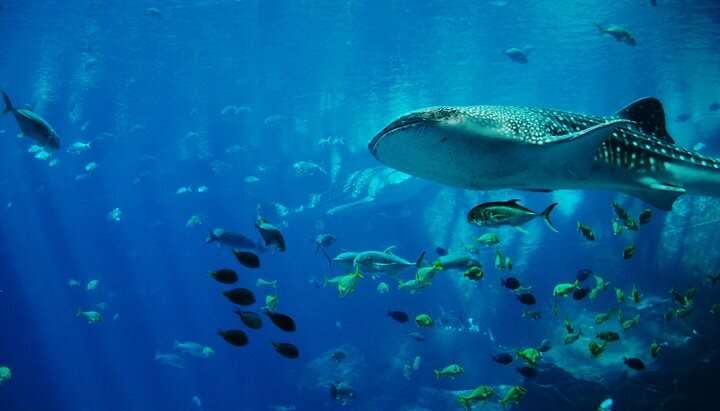Credit: Radboud University
Large fish develop respiratory distress more quickly in warm water than smaller species, according to a new study involving researchers at Radboud University in collaboration with international researchers from McGill University (Canada) and the University of Montana (U.S.). This means that ocean warming triggered by climate change will have an impact on the respiratory physiology of larger fish, which may eventually affect physiological performance, survival and size-structure of fish populations. The researchers have come to this conclusion with the aid of a new model that can more accurately calculate the effect of body temperature, activity and size on oxygen uptake. Their findings will be published in PNAS in the week of 30 November.
Oxygen is essential for animals to generate the energy they need to grow, reproduce and survive. Oxygen uptake is linked to factors such as body temperature or size, with small animals consuming relatively more oxygen than larger animals of the same species. We also know that fish living in warmer regions need more oxygen than those in colder regions.
Complex interactions
Biologists use their knowledge of oxygen uptake to predict how animals will respond to external changes such as global warming. For example, do fish migrate to cooler regions as the oceans warm? Or do they stop growing earlier to prevent respiratory distress, despite the major implications that this might have for their fertility?
Biologists struggle with the interactions between size, temperature and oxygen uptake in order to make accurate predictions. "That's because the relationships affect one another making it complicated to investigate", says lead author Juan Rubalcaba (McGill and Montana). "For example, if warming increases oxygen uptake in fish, the water enveloping their gills will become depleted of oxygen, which in turn impedes oxygen uptake via the gills. Fish therefore ventilate their gills, but the efficiency of this ventilation depends on water temperature and body size."
Lack of oxygen
To gain a better understanding of how thes mechanisms work, the team of researchers have developed a model which explicitly models the role of oxygen conditions directly around the gills. Radboud biologist Wilco Verberk explains: "We compared predictions about oxygen uptake from our new model with actual measurements from over 200 fish species. Predictions matched the empirical patterns perfectly and we noticed that oxygen limitation is more likely to occur in larger fish, in warmer water and at high activity levels."
Rubalcaba: "Earlier models mainly looked at the oxygen uptake of animals either when resting or at low temperatures, but our model shows that oxygen can be limiting if you take all three factors into account."
The new model has a greater ecological relevance than the earlier models that focussed on resting fish. Verberk: "Searching for food, growing and reproducing or evading predators all require additional energy and therefore oxygen. In particular, the activity of larger individuals within a fish species will come under pressure due to the warming of lakes, oceans and rivers. This will make them less able to deal with climate change."
More information: Juan G. Rubalcaba et al. Oxygen limitation may affect the temperature and size dependence of metabolism in aquatic ectotherms, Proceedings of the National Academy of Sciences (2020). DOI: 10.1073/pnas.2003292117
Journal information: Proceedings of the National Academy of Sciences
Provided by Radboud University
























